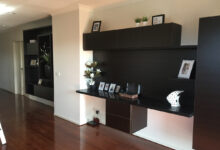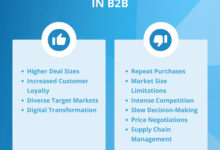B2B Cabinets: 7 Powerful Insights for Smart Business Buyers
Looking for reliable, high-performance storage solutions? B2B cabinets are transforming how businesses organize, protect, and scale their operations. From server rooms to industrial facilities, these cabinets are more than just metal boxes—they’re strategic assets.
What Are B2B Cabinets and Why They Matter

B2B cabinets refer to storage units designed and sold from one business to another, typically used in commercial, industrial, or institutional environments. Unlike consumer-grade furniture, these cabinets are built for durability, security, and integration with larger operational systems.
Defining B2B Cabinets in Modern Commerce
The term “B2B cabinets” encompasses a wide range of products—from server racks and electrical enclosures to industrial storage units and medical equipment cabinets. What sets them apart is their purpose: they are engineered to meet the rigorous demands of business environments.
- Designed for commercial durability and long-term use
- Often customized to meet specific industry standards
- Integrated with safety, cooling, and access control systems
These cabinets are not sold through retail channels but through specialized distributors, OEM partnerships, or direct manufacturer sales. This B2B model ensures that buyers receive tailored solutions backed by technical support and service agreements.
Key Differences Between B2C and B2B Cabinets
While a consumer might buy a filing cabinet from an office supply store, a business purchasing b2b cabinets is making a strategic investment. The decision involves multiple stakeholders, longer sales cycles, and a focus on total cost of ownership rather than upfront price.
- B2C cabinets prioritize aesthetics and affordability
- B2B cabinets emphasize load capacity, material quality, and compliance
- Service and warranty support are critical in B2B transactions
“In B2B, the cabinet isn’t just a product—it’s part of a solution.” — Industry Analyst, Supply Chain Today
The Growing Demand for B2B Cabinets in 2024
Market trends show a steady increase in demand for specialized storage and housing units across sectors like IT, healthcare, manufacturing, and logistics. According to a Grand View Research report, the global industrial cabinets market is projected to grow at a CAGR of 4.8% from 2023 to 2030.
Drivers Behind the Surge in B2B Cabinet Purchases
Several macroeconomic and technological factors are fueling this growth. First, the expansion of data centers and edge computing has created a massive need for server and network cabinets. Second, stricter regulatory requirements in healthcare and manufacturing demand secure, compliant storage.
- Rise of smart factories and Industry 4.0
- Increased cybersecurity concerns requiring locked enclosures
- Supply chain resilience pushing for better inventory management systems
Additionally, companies are investing in workplace safety and ergonomics, leading to higher adoption of modular and adjustable b2b cabinets in warehouses and production floors.
Regional Market Trends and Hotspots
North America and Europe remain dominant markets due to advanced infrastructure and high industrial output. However, Asia-Pacific is emerging as a fast-growing region, driven by manufacturing hubs in China, India, and Vietnam.
- U.S. data center construction up 18% in 2023 (Source: Cushman & Wakefield)
- European Union’s Green Deal influencing eco-design standards for cabinets
- India’s PLI scheme boosting electronics manufacturing and enclosure demand
These regional dynamics mean that global suppliers of b2b cabinets must adapt to local codes, materials preferences, and delivery timelines.
Types of B2B Cabinets and Their Applications
Not all b2b cabinets are created equal. The type of cabinet needed depends on the industry, environment, and function. Below are the most common categories and their real-world uses.
Server and Network Cabinets
These are critical in IT infrastructure, housing servers, switches, routers, and power distribution units. They come in wall-mount and floor-standing models, with options for cooling, cable management, and remote monitoring.
- Used in data centers, telecom rooms, and enterprise offices
- Available in 6U to 42U heights (U = rack unit, ~1.75 inches)
- Often equipped with locking doors and perforated panels for airflow
Brands like RackSolutions and APC by Schneider Electric dominate this segment with scalable, secure designs.
Electrical and Control Enclosures
Designed to protect sensitive electrical components from dust, moisture, and tampering, these cabinets are common in manufacturing plants, utility stations, and automation systems.
- Made from stainless steel, polycarbonate, or NEMA-rated materials
- Rated for indoor or outdoor use (e.g., NEMA 4X for weather resistance)
- Often include grounding systems and ventilation filters
Companies like Hammond Manufacturing offer customizable enclosures that integrate seamlessly with PLCs and SCADA systems.
Industrial Storage and Tool Cabinets
Used in warehouses, workshops, and maintenance facilities, these cabinets store tools, spare parts, and hazardous materials. They’re built for heavy-duty use and often feature adjustable shelves, locking mechanisms, and anti-tip designs.
- Common in automotive, aerospace, and energy sectors
- Available in steel, aluminum, or composite materials
- May include RFID tracking or inventory management integration
For example, Global Industrial and Grainger offer modular b2b cabinets that support lean manufacturing practices.
How to Choose the Right B2B Cabinets for Your Business
Selecting the right cabinet isn’t just about size or price. It requires a strategic assessment of your operational needs, future scalability, and compliance requirements.
Assessing Your Operational Needs
Start by identifying what you’re storing or protecting. Is it sensitive electronics? Heavy machinery parts? Medical supplies? Each use case demands different features.
- For IT equipment: prioritize airflow, cable access, and security
- For industrial tools: focus on load capacity and durability
- For hazardous materials: ensure chemical resistance and proper labeling
Conduct a site audit to measure space constraints, environmental conditions (humidity, temperature), and access points.
Material and Build Quality Considerations
The material of a cabinet directly impacts its performance and lifespan. Steel is the most common due to its strength and fire resistance, but aluminum offers lighter weight and corrosion resistance.
- Cold-rolled steel: ideal for indoor server cabinets
- Stainless steel: best for food processing or medical environments
- Polycarbonate: used for transparent enclosures needing impact resistance
Check for powder-coated finishes, weld quality, and hinge durability. Poor construction can lead to warping, rust, or security breaches.
Compliance and Certification Standards
Many industries require cabinets to meet specific standards. Ignoring these can result in fines, safety hazards, or insurance issues.
- NEMA ratings for electrical enclosures (e.g., NEMA 12 for dust, NEMA 4 for water)
- UL certification for fire and electrical safety
- OSHA compliance for workplace storage in the U.S.
Always request certification documentation from suppliers before purchase.
Top Suppliers of B2B Cabinets in 2024
The market for b2b cabinets is highly competitive, with global players and niche specialists offering a range of solutions. Here are some of the most trusted names in the industry.
Global Leaders in Cabinet Manufacturing
Large multinational companies offer standardized, high-volume products with global support networks.
- Schneider Electric: Known for APC server cabinets and NetShelter solutions
- Rittal: German engineering leader in industrial enclosures and climate control
- ABB: Offers modular electrical cabinets for automation and power systems
These brands are often preferred for large-scale deployments due to their reliability and service infrastructure.
Niche and Regional Specialists
Smaller companies often provide more customization and faster turnaround times.
- Tripp Lite (now Eaton): Offers compact server cabinets for small businesses
- Chatsworth Products: Focuses on data center efficiency and sustainability
- Peerless-Premier: Specializes in medical and laboratory cabinets
These suppliers are ideal for businesses with unique requirements or limited space.
How to Evaluate a B2B Cabinet Supplier
Not all suppliers are equal. Use the following criteria to make an informed choice:
- Proven track record and customer reviews
- Ability to provide custom designs and modifications
- Warranty terms and technical support availability
- Lead times and logistics capabilities
Request product samples, visit manufacturing facilities if possible, and ask for case studies from similar clients.
Customization Options for B2B Cabinets
One of the biggest advantages of buying b2b cabinets is the ability to customize them for your specific needs. Off-the-shelf models may not fit your space or workflow, but custom solutions can.
Size and Dimension Flexibility
Standard cabinets come in fixed sizes, but custom units can be built to exact specifications. This is crucial for retrofitting old buildings or integrating with existing machinery.
- Adjustable height, width, and depth options
- Custom cutouts for cables, vents, or mounting hardware
- Modular designs that allow future expansion
For example, a data center in a historic building might need narrow, tall cabinets to fit between support beams.
Security and Access Control Features
Security is a top concern in B2B environments. Custom cabinets can include advanced locking systems, biometric scanners, or integration with building access software.
- Electronic locks with audit trails
- RFID or keypad entry systems
- Alarm triggers for unauthorized access attempts
Hospitals and labs often use cabinets with dual authentication to protect sensitive samples or medications.
Integration with Smart Systems
Modern b2b cabinets are becoming part of the Internet of Things (IoT). They can monitor temperature, humidity, door status, and even power usage in real time.
- Sensors for environmental monitoring
- Wi-Fi or Ethernet connectivity for remote alerts
- Integration with CMMS (Computerized Maintenance Management Systems)
For instance, a pharmaceutical warehouse might use smart cabinets that send alerts if the internal temperature exceeds safe limits.
The Role of B2B Cabinets in Supply Chain and Inventory Management
Beyond protection and organization, b2b cabinets play a strategic role in optimizing inventory control and operational efficiency.
Improving Warehouse Organization
Well-designed cabinets reduce clutter, minimize search time, and prevent loss or damage of critical components.
- Color-coded cabinets for quick identification
- Labeling systems integrated with barcode scanners
- Modular shelving for dynamic inventory needs
A study by McKinsey & Company found that organized storage can improve warehouse productivity by up to 25%.
Supporting Just-in-Time (JIT) Manufacturing
In lean manufacturing, every second counts. Cabinets that store tools and parts near production lines reduce downtime and improve workflow.
- Kanban-style cabinets with visual inventory indicators
- Mobile cabinets that move with assembly stations
- Automated dispensing systems for high-turnover items
Toyota and other JIT leaders use customized b2b cabinets to maintain smooth production flow.
Enhancing Asset Tracking and Accountability
When cabinets are equipped with digital locks and tracking systems, businesses gain better visibility into who accessed what and when.
- Integration with ERP systems like SAP or Oracle
- Real-time inventory updates via IoT sensors
- Automated reordering when stock runs low
This level of control is especially valuable in regulated industries like aerospace and defense.
Future Trends Shaping the B2B Cabinets Industry
The future of b2b cabinets is not just about metal and locks—it’s about intelligence, sustainability, and adaptability.
Smart and Connected Cabinets
As IoT adoption grows, cabinets will become active participants in operational ecosystems. Imagine a server cabinet that automatically adjusts fan speed based on internal temperature or a tool cabinet that sends a notification when a wrench is missing.
- Embedded AI for predictive maintenance
- Cloud-based dashboards for fleet management
- Energy-efficient designs with solar-compatible power options
Companies like Siemens and Honeywell are already piloting smart cabinet networks in industrial parks.
Sustainability and Eco-Friendly Materials
Environmental responsibility is no longer optional. Buyers are demanding cabinets made from recycled materials, with low-carbon manufacturing processes.
- Use of recycled steel and aluminum
- Water-based powder coatings instead of solvents
- Modular designs that reduce waste during upgrades
The EU’s Circular Economy Action Plan is pushing manufacturers to design for disassembly and recycling.
Modularity and Scalability as Standard Features
Businesses need solutions that grow with them. Future b2b cabinets will be designed from the ground up for easy reconfiguration.
- Interlocking panels that snap together
- Universal mounting rails for different accessories
- Plug-and-play electrical and data interfaces
This shift will reduce installation time and lower total cost of ownership.
Cost Considerations and ROI of B2B Cabinets
While b2b cabinets represent a capital expense, their long-term value often outweighs the initial cost. Understanding the return on investment (ROI) is key to justifying the purchase.
Upfront vs. Long-Term Costs
It’s tempting to choose the cheapest option, but low-quality cabinets can lead to higher costs over time due to repairs, replacements, or downtime.
- Premium cabinets may cost 20-30% more but last 2-3x longer
- Energy-efficient models reduce cooling costs in data centers
- Secure cabinets prevent theft and insurance claims
A TCO (Total Cost of Ownership) analysis should include maintenance, energy use, and risk mitigation.
Measuring Operational Efficiency Gains
Well-designed cabinets improve workflow, reduce errors, and enhance safety—all of which translate into measurable savings.
- Reduced tool search time = more productive labor hours
- Fewer equipment failures due to better protection
- Lower insurance premiums for compliant storage
For example, a hospital that implements secure medication cabinets may see a 15% reduction in inventory loss.
Financing and Leasing Options
Many suppliers now offer leasing, rental, or pay-per-use models, especially for high-end server or medical cabinets.
- CapEx vs. OpEx considerations
- Flexible upgrade paths at end of lease
- Tax advantages in some jurisdictions
This makes advanced b2b cabinets accessible to small and mid-sized businesses.
What are b2b cabinets?
B2B cabinets are storage or housing units sold from one business to another, designed for commercial, industrial, or institutional use. They include server racks, electrical enclosures, tool cabinets, and more, built for durability, security, and compliance.
What industries use b2b cabinets?
Key industries include IT and data centers, manufacturing, healthcare, logistics, energy, and telecommunications. Each sector uses specialized cabinets tailored to its operational and regulatory needs.
How do I choose the right b2b cabinet supplier?
Evaluate suppliers based on product quality, customization options, compliance certifications, customer support, and delivery capabilities. Request references and product samples when possible.
Are smart b2b cabinets worth the investment?
Yes, especially for businesses with high-value assets or strict compliance requirements. Smart cabinets with IoT sensors, access controls, and remote monitoring can improve security, efficiency, and maintenance planning.
Can b2b cabinets be customized?
Absolutely. Most suppliers offer customization in size, material, locking mechanisms, and integration with digital systems. Custom cabinets ensure optimal fit and functionality for unique business environments.
Investing in the right b2b cabinets is more than a logistical decision—it’s a strategic move that enhances security, efficiency, and scalability. From data centers to factory floors, these solutions are foundational to modern business operations. As technology evolves, so too will the capabilities of b2b cabinets, making them smarter, greener, and more adaptable than ever. By understanding your needs, choosing reputable suppliers, and planning for the future, your business can gain a lasting competitive edge.
Further Reading:




